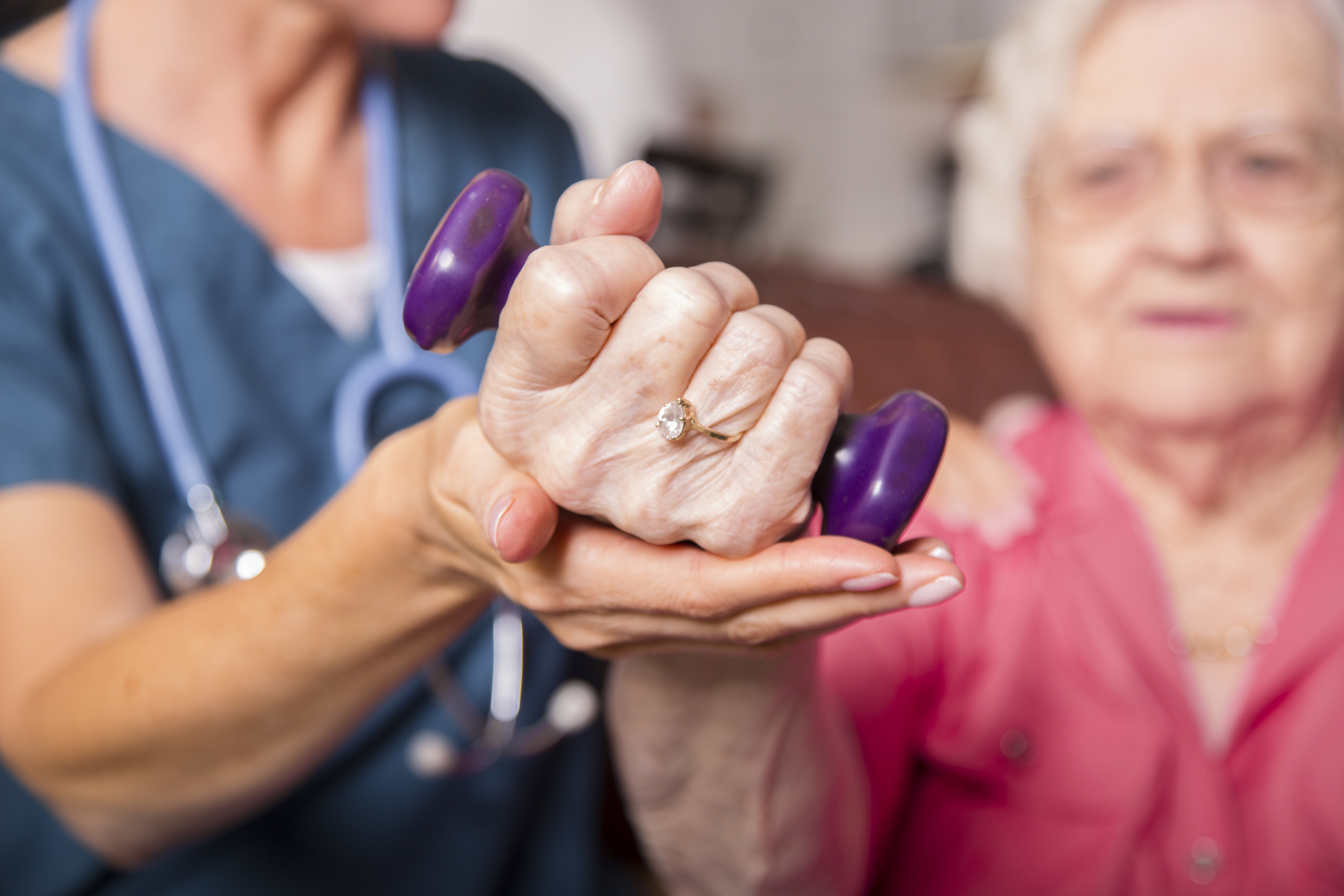Has a doctor prescribed therapy for you or a loved one after surgery, an illness or accident? There are three different types of therapy—physical, occupational and speech therapy. It’s easy to be confused about the differences between them.
Physical Therapy
Most people are familiar with physical therapy. The goal of physical therapy is to reduce pain and inflammation, accelerate healing, strengthen muscles and increase range of motion—all the things that will help get you on your feet again. Physical therapy might also be used to help alleviate chronic pain from osteoarthritis, rheumatoid arthritis, fibromyalgia or neuropathic sources. Physical therapy is often prescribed after surgery such as joint replacement or, following an injury or prolonged illness.
Physical therapy is provided in a number of settings and may be started while the patient is still in the hospital. Physical therapy is often continued at a rehabilitation center, nursing home, outpatient clinic or in the patient’s own home.
In the hospital, rehabilitation center or nursing home, the goal of therapy is to improve the patient’s function and strength so that they are able to return home to a level of independence.
Physical therapy in an outpatient facility is generally for more active people who are not homebound although physical therapy can also be administered in the home for those unable to leave for medical or logistical reasons.
With older patients, physical therapists can provide exercises to strengthen muscles and improve or maintain their ability to get out of bed, a chair, to walk with or without assistance and to help prevent falls.
Physical therapy utilizes a number of treatment methods including exercise, massage, joint mobilization, electrical stimulation and the application of heat or ice.
Occupational Therapy
In general, the purpose of occupational therapy is to assist the patient in improving or maintaining the ability to perform the activities of daily living (ADLs) such as dressing, toileting and bathing. Occupational therapy can provide support for older adults experiencing physical or cognitive changes and may also provide education for patients with chronic diseases, as well as guidance and education for family members and caregivers. Occupational therapists are also skilled in evaluating a patient’s home and making recommendations for appropriate adaptive equipment such as eating and drinking aids, dressing and grooming aids as well as products and ways to improve home safety.
Occupational therapy can be beneficial for patients who have been injured, have orthopedic conditions such as a joint replacement, suffer from arthritis or Parkinson’s or who have limitations following a stroke or heart attack.
Occupational therapy can be performed in the hospital, a rehabilitation facility or in the patient’s home. Occupational therapists use a variety of treatment methods including stretching and strengthening exercises, practice of daily activities and instruction in the use of adaptive equipment.
Speech Language Pathology
Speech therapists deal with a person’s ability to communicate and swallow. Speech therapy can help someone who is having difficulty swallowing or eating, or who has language or cognitive-linguistic problems. Speech therapy is often prescribed after a stroke or for someone with progressive neurological conditions such as dementia. Speech therapy can also be useful in treating breathing problems associated with lung diseases. In general, speech therapy is helpful in addressing the decline sometimes associated with the aging process.
Speech therapists work with patients in hospitals, rehabilitation centers, nursing homes and in the patient’s own home. Speech therapists may use specific exercises to strengthen the muscles of the mouth and throat or cognitive exercises to help restore memory or improve sequencing and problem solving.
One or a combination of these various therapies can be very useful in restoring and rehabilitating your life or that of a loved one after surgery, an illness or accident.
For more information on rehabilitation services at Holland Home, contact 616-235-5113.

